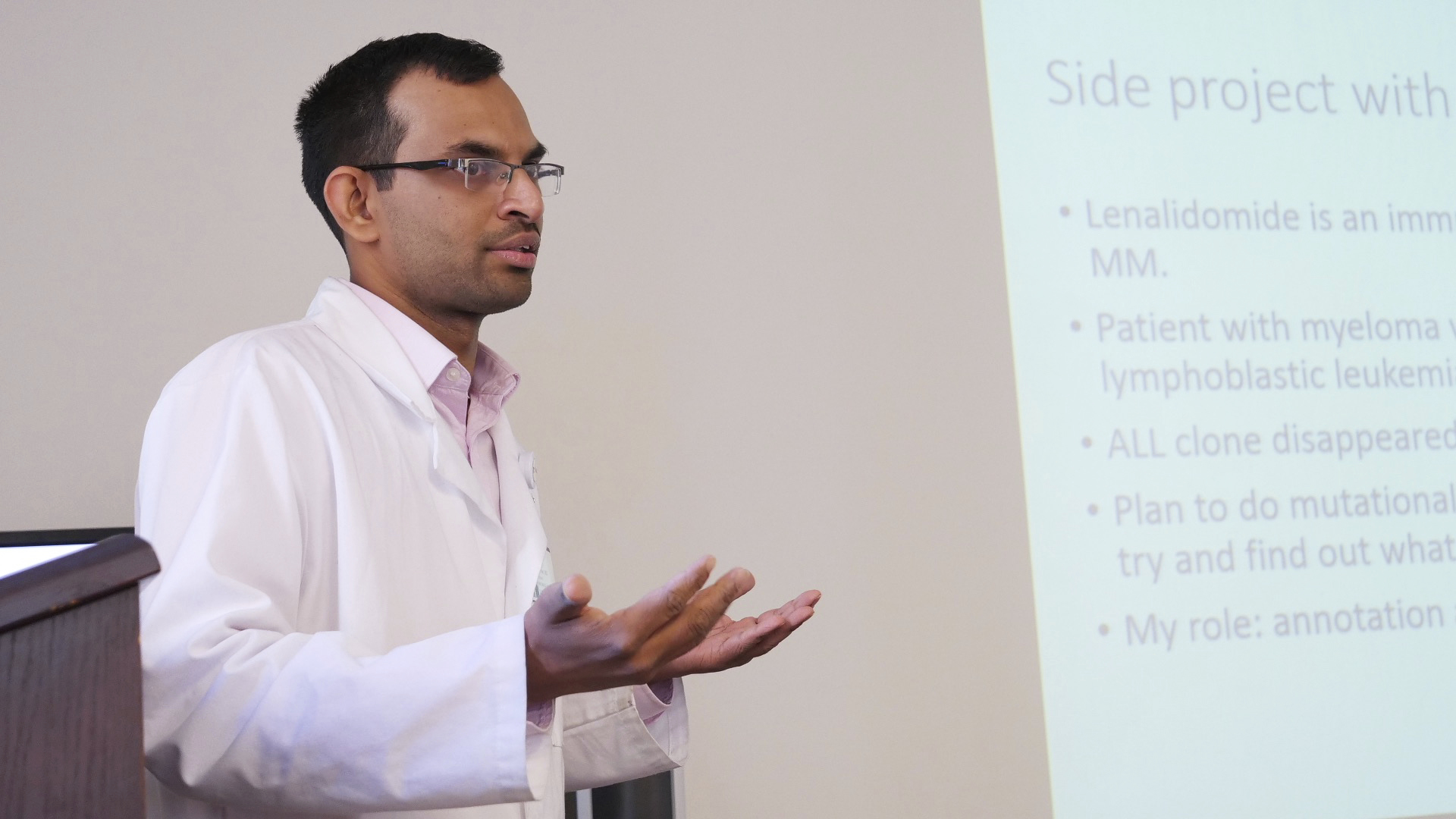Clinical Scientist Training Program (CSTP)
A yearlong clinical research training program for medical students

The Clinical Scientist Training Program (CSTP) offers clinical research training and scholarships to University of Pittsburgh medical students who are committed to careers in clinical investigation. Students may complete the dual MD/MS in clinical research or the MD/Certificate in clinical research.
Eligibility and Timing
The CSTP is designed for students who will take a dedicated research year between their third and fourth year of medical school. Students must have completed their core clerkships and are required by Pitt Med to take USMLE Step 2 prior to beginning their research year. Students are not enrolled in medical school during the CSTP year and therefore may not schedule clinical rotations during this time.
Program Structure
The CSTP year typically begins between June 1 and June 19, depending on when students complete their May clerkships. The program lasts 12 months from the individual start date. The research year includes:
- Formal Coursework
Students complete the ICRE core curriculum (11 credits). Those completing the MD/Certificate complete 7 additional elective credits. Those completing the dual MD/MS program complete 6 units of thesis research and 10 additional track-specific required and elective credits. MS candidates are required to either write a master’s thesis or prepare two first-author, submission-ready research manuscripts prior to graduation from medical school.
- Mentored Clinical Research
Students complete a mentored clinical research project with their CSTP mentor.
- Financial Support
During the research year, students receive a living stipend, health insurance, and travel funds. Tuition for the Certificate is fully covered. Students pursuing the MS are responsible for the cost of the additional credits. Upon successful completion of the research year objectives, students receive a substantial tuition scholarship toward their fourth year of medical school.
1
2
3
Application Timeline
Applications open in early September, with a deadline of January 15. This timeline allows students adequate time to prepare strong applications and aligns with updated school scheduling requirements.
For information on the program curriculum, financial support, and the mentoring component, see the Program Details page.
Leadership

 Career Development
Career Development CSTP - Home
CSTP - Home








